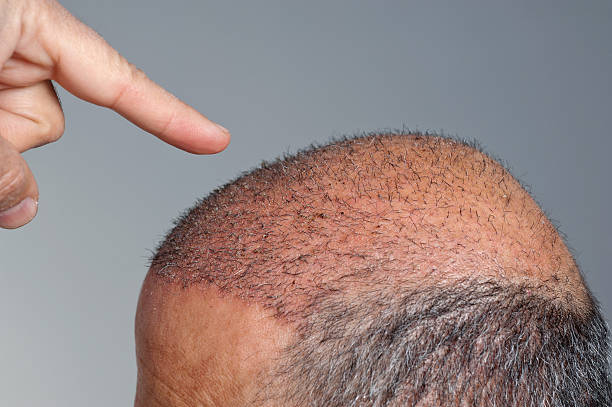Scalp Psoriasis: Diagnosis and Effective Treatment Options
Scalp psoriasis is a chronic autoimmune condition that leads to the rapid buildup of skin cells on the scalp, causing scaling, inflammation, and discomfort. Though not contagious, it can greatly affect quality of life, confidence, and daily comfort. Understanding the condition and knowing how to treat it effectively is essential for long-term management.

What are the signs and symptoms of scalp psoriasis?
Scalp psoriasis manifests in various ways, ranging from mild to severe. Common signs and symptoms include:
-
Red, inflamed patches on the scalp
-
Silvery-white scales or plaques
-
Dry, flaky skin that may shed
-
Itching, burning, or soreness
-
Temporary hair loss in affected areas
In some cases, scalp psoriasis can extend beyond the hairline, affecting the forehead, neck, or behind the ears. The severity of symptoms can fluctuate over time, with periods of improvement and worsening.
How is scalp psoriasis diagnosed and when should you see a doctor?
Diagnosing scalp psoriasis typically involves a physical examination by a dermatologist or healthcare provider. They will assess the appearance of the affected areas and may ask about your medical history and any family history of psoriasis or other autoimmune conditions.
You should consider seeing a doctor if:
-
You experience persistent scalp itching, redness, or scaling
-
Over-the-counter treatments aren’t providing relief
-
The condition is affecting your quality of life or causing emotional distress
-
You notice hair loss or changes in your scalp’s appearance
In some cases, a skin biopsy may be necessary to confirm the diagnosis or rule out other conditions with similar symptoms, such as seborrheic dermatitis.
What are the most effective treatment options for scalp psoriasis?
Treatment for scalp psoriasis aims to reduce inflammation, remove scales, and slow down the growth of skin cells. The most effective options include:
-
Topical treatments:
-
Corticosteroids: Reduce inflammation and itching
-
Vitamin D analogs: Slow skin cell growth
-
Salicylic acid: Helps remove scales
-
Coal tar: Reduces inflammation and slows skin cell growth
-
-
Light therapy:
- Targeted phototherapy using UVB light can help reduce symptoms
-
Systemic medications:
-
For severe cases, oral or injectable medications may be prescribed
-
Examples include methotrexate, cyclosporine, and biologics
-
-
Medicated shampoos:
- Containing ingredients like coal tar, salicylic acid, or ketoconazole
-
Scalp treatments:
- Oils, solutions, or foams designed to penetrate the scalp and provide relief
What supportive care and lifestyle tips can help manage scalp psoriasis?
In addition to medical treatments, several lifestyle changes and self-care practices can help manage scalp psoriasis:
-
Stress management: Practice relaxation techniques, as stress can trigger flare-ups
-
Gentle hair care: Use mild shampoos and avoid harsh styling products
-
Moisturize: Keep the scalp moisturized to reduce scaling and itching
-
Avoid scratching: This can worsen symptoms and lead to infection
-
Healthy diet: Some people find relief by avoiding trigger foods and maintaining a balanced diet
-
Sunlight exposure: Controlled, moderate sun exposure may help improve symptoms
-
Humidifier use: Keeping the air moist can prevent dry skin and reduce itching
How do treatment costs compare among different options?
Treatment costs for scalp psoriasis can vary widely depending on the severity of the condition and the chosen treatment method. Here’s a comparison of some common treatment options:
| Treatment | Provider | Cost Estimation |
|---|---|---|
| Over-the-counter shampoos | Various retailers | $10 - $30 per bottle |
| Prescription topical treatments | Pharmacy | $30 - $100 per tube/bottle |
| Phototherapy sessions | Dermatology clinics | $50 - $200 per session |
| Biologic medications | Pharmacy | $10,000 - $30,000 per year |
| Systemic oral medications | Pharmacy | $100 - $500 per month |
Prices, rates, or cost estimates mentioned in this article are based on the latest available information but may change over time. Independent research is advised before making financial decisions.
Insurance coverage can significantly impact out-of-pocket costs for prescription treatments. Some pharmaceutical companies also offer patient assistance programs for expensive medications like biologics.
When considering treatment options, it’s essential to discuss both efficacy and cost with your healthcare provider to find the most suitable approach for your individual case.
Scalp psoriasis, while challenging to manage, can be effectively treated with the right combination of medical interventions and lifestyle adjustments. By working closely with a dermatologist and adhering to a personalized treatment plan, many individuals can achieve significant symptom relief and improved quality of life.
This article is for informational purposes only and should not be considered medical advice. Please consult a qualified healthcare professional for personalized guidance and treatment.




